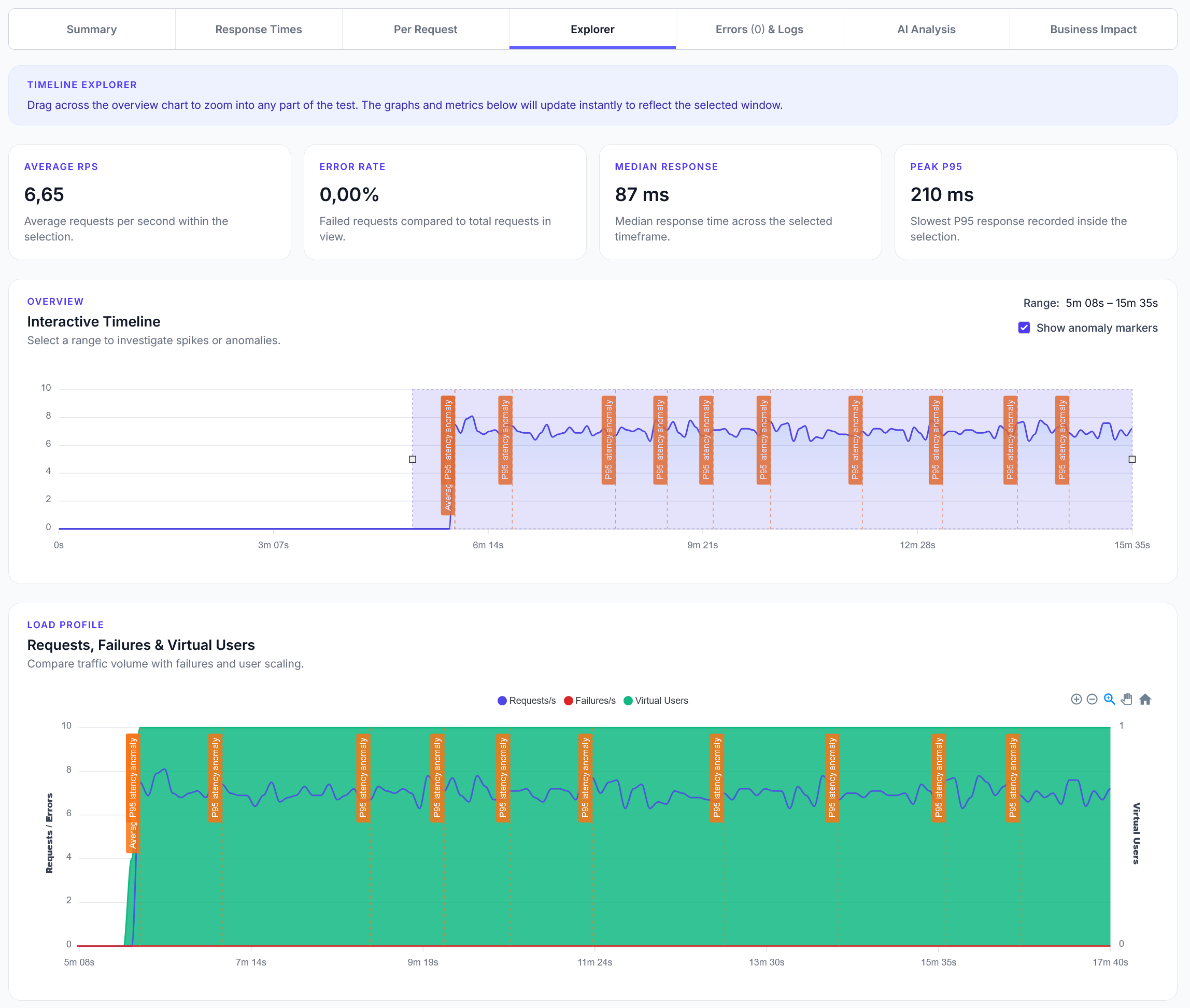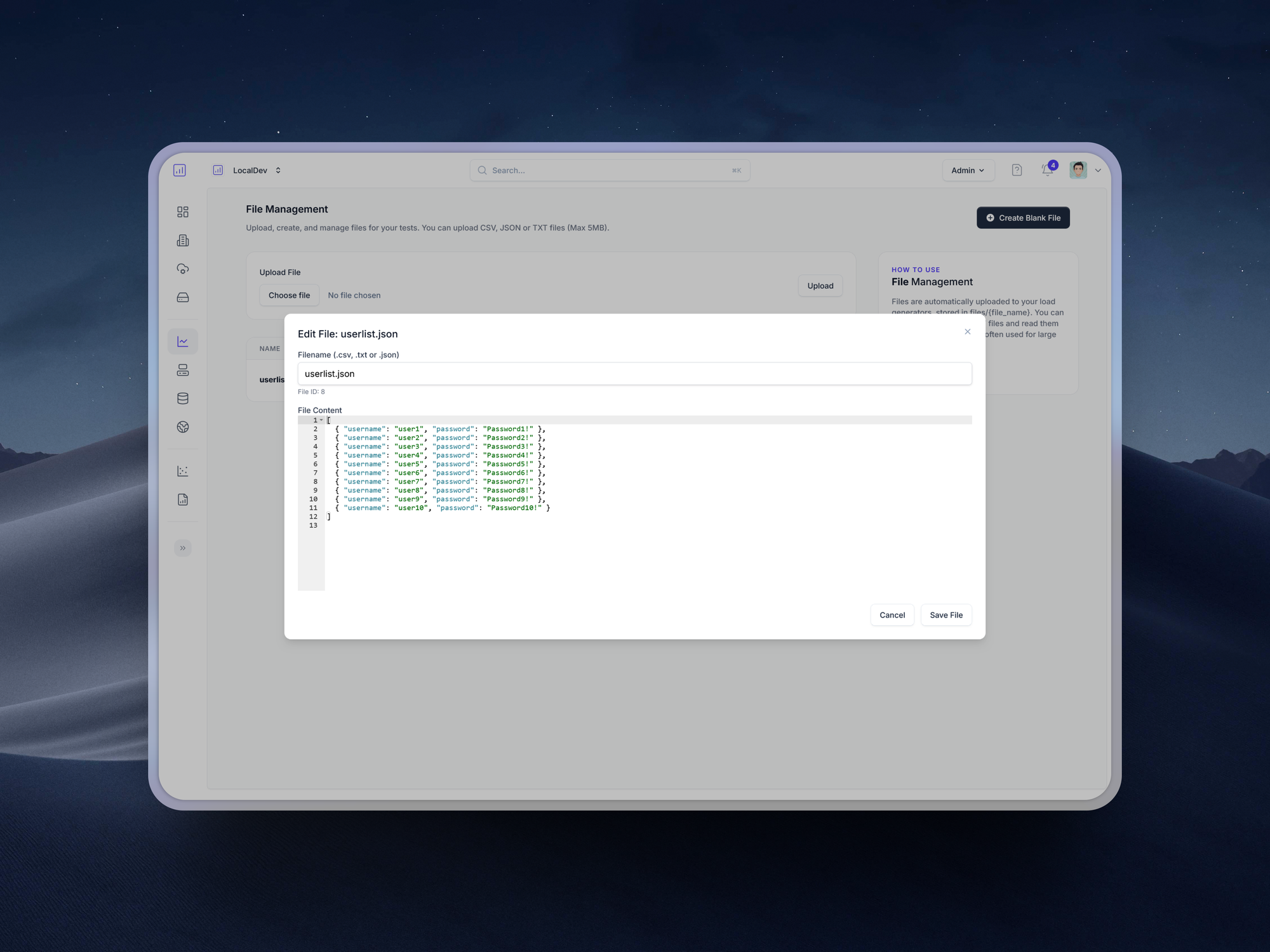
Explorer reports addition
We have added a new Explorer feature to reports, with a timeline scrubber and easy anomaly detection.
TLDR: LoadForge has introduced enhanced file management capabilities, allowing users to upload and manage data files to improve the realism and quality of load tests by integrating them seamlessly into Locust scripts, with support for multiple file formats and persistent storage for future tests.

We're excited to announce a powerful new addition to LoadForge: enhanced file management capabilities for your load tests. This feature allows you to upload, create, and manage data files that can be seamlessly integrated into your load testing scripts.
Load testing often requires realistic data to simulate user behavior accurately. Whether you're testing authentication systems with thousands of user credentials, submitting forms with varied input data, or configuring complex API test scenarios, having access to structured data files can significantly improve the quality and realism of your tests.
Based on your feedback, we've implemented a robust file management system that makes it easy to incorporate data-driven testing into your LoadForge projects.
Files uploaded through our intuitive interface are automatically distributed to all your load generators and stored in a dedicated files/ directory. Your Locust scripts can then access these files using standard file operations, making it simple to:
Read more on our documentation site.
Here's a quick example of how you might use a JSON file containing user credentials in your Locust test:
def on_start(self):
# Load user credentials from the uploaded JSON file
with open('files/userlist.json', 'r') as f:
self.users = json.load(f)
<pre><code># Select a random user for this test
user_data = random.choice(self.users)
self.username = user_data['username']
self.password = user_data['password']
Log in with the selected credentials
self.client.post("/login", {
"username": self.username,
"password": self.password
})
LoadForge Team
The LoadForge Team